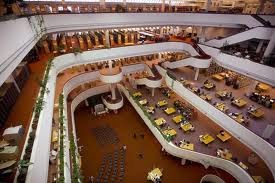
One of my favourite podcasts is Canadian, Eleanor Wachtel's Writer's and Company, a 2011 Silver Medal program at the New York Festival for World's Best Radio Programs. Each Sunday at 3, Ms. Wachtel introduces us to a new literary figure, primarily through so-in-depth author interviews and retrospectives. I am always so impressed by her breadth of knowledge and her and her team's depth of research - it is rare that I come away without learning something new. This past week was no exception. Note that these podcasts can be heard any time, and there is a wealth of interesting episodes to spend many a snowy afternoon in pleasurable company.

I first heard Colm Toibin, 2013 Blue Metropolis winner, in an August, 2014 podcast where he talked about The Testament of Mary, his short novel on the mother of Jesus who is reflecting on her son's crucifixion 20 years after the fact. As a lapsed Irish Catholic myself, it was a brilliant read. Have you never wondered about who she was?, beyond the flowers and benevolent smile that shines down upon us from every statue, icon and painting.
Mr. Toibin is an Enniscorthy, County Wexford, Ireland native and perhaps it is because he is so close to my roots (35 kms away!) that his humour and lens on the world resonates so loudly within me. I have spent time in his town and the fields throughout his countryside, walked their mass paths, drank at a ceiledh, and sat enraptured at the ancient Story House. He speaks as though he's in your living room, you're sharing an ale, he knows your relations and helps you find humour in the seriousness of it all. His most recent novel, Nora Webster, has just been published.
 In his next appearance, the November 16th podcast, Ms. Wachtel pairs him with a writer I've never read, Marilynne Robinson, 2005 winner of the Pulitzer Prize. Publishing her first novel in her mid-30s, it would be another 20 years before we could read some of her fiction again. She has resided at the University of Iowa for all of this time, teaching in the respected Writer's Workshop program there and writing non-fiction. You can read about that here. Her re-entry into fiction begins with the publication of the 1st novel in her Gilead trilogy, and she's here to celebrate the publication of Lila, the 3rd book.
In his next appearance, the November 16th podcast, Ms. Wachtel pairs him with a writer I've never read, Marilynne Robinson, 2005 winner of the Pulitzer Prize. Publishing her first novel in her mid-30s, it would be another 20 years before we could read some of her fiction again. She has resided at the University of Iowa for all of this time, teaching in the respected Writer's Workshop program there and writing non-fiction. You can read about that here. Her re-entry into fiction begins with the publication of the 1st novel in her Gilead trilogy, and she's here to celebrate the publication of Lila, the 3rd book.I have never enjoyed listening to the English language as spoken word as much as I did on this afternoon, listening to this podcast. Ms. Robinson's descriptions, elucidation of her thoughts and opinions, was music to listen to. Her sentences take you along on an arc, with your brain following along to where it is headed, seeing if you land in the same place as Ms. Robinson. I loved it. And as most readers do, I took notes, made lists, and shoved the paper in my bag. All while cooking a delicious dinner on a wintry afternoon.
So it was, two days later, at the end of my current pile of library books, that I headed to our local to check out some more. And lo and behold, there on the shelf was another Colm Toibin, a book of short stories, The Empty Family. As the Canadian snow begins descending upon us, I find myself retreating to my chair, or sometimes my bed, in front of the fire with a pile of books before me. I also find myself choosing stories of Ireland, by Irish writers, which reflect the world I imagine my grandfather to have come from, which reflect the memories I have of growing up amidst a large and boisterous Irish Catholic family, I often wonder about returning there for a longer period of time.
With Mr. Toibin safely (and jubilantly) in hand, I pull my list from my bag, and push my luck by heading to the Rs, and there I find Book 1 in the Gilead trilogy! Both authors are still with me, 2 days later. Along with Alice McDermott - her opening sentence of At Weddings and Wakes is a blog post in itself - and Jonas Jonasson, my next 3 weeks are covered! Synchronicity indeed. Thank you all 5 of you and the Writers and Company team.
S.







